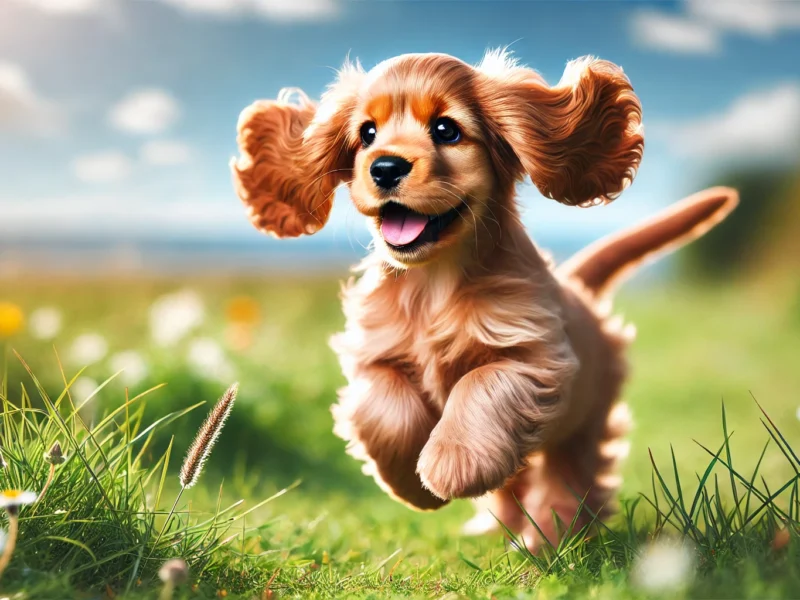Introduction to the Anatolian Shepherd Dog
Anatolian Shepherd Dogs are big and strong. They have been guarding livestock for thousands of years. These dogs are loyal and protect their family. They can work in hot and cold weather. With their sharp senses, they can detect danger from far away. They need lots of space to run and play.
These dogs are very smart and can learn new things quickly. They are great with kids and other animals if trained well. Anatolian Shepherds have short fur that is easy to take care of. They live a long time, up to 15 years. These dogs are calm and quiet but will bark to protect you. They make great pets for families who love the outdoors.
History and Origins
The history of the Anatolian Shepherd Dog dates back thousands of years to the Anatolian region of Turkey. Bred as a working dog, its primary role was to guard flocks of sheep and goats from wolves, bears, and other predators. The breed’s heritage is deeply rooted in the rural life of Turkish shepherds, who valued these dogs for their reliability and independence.
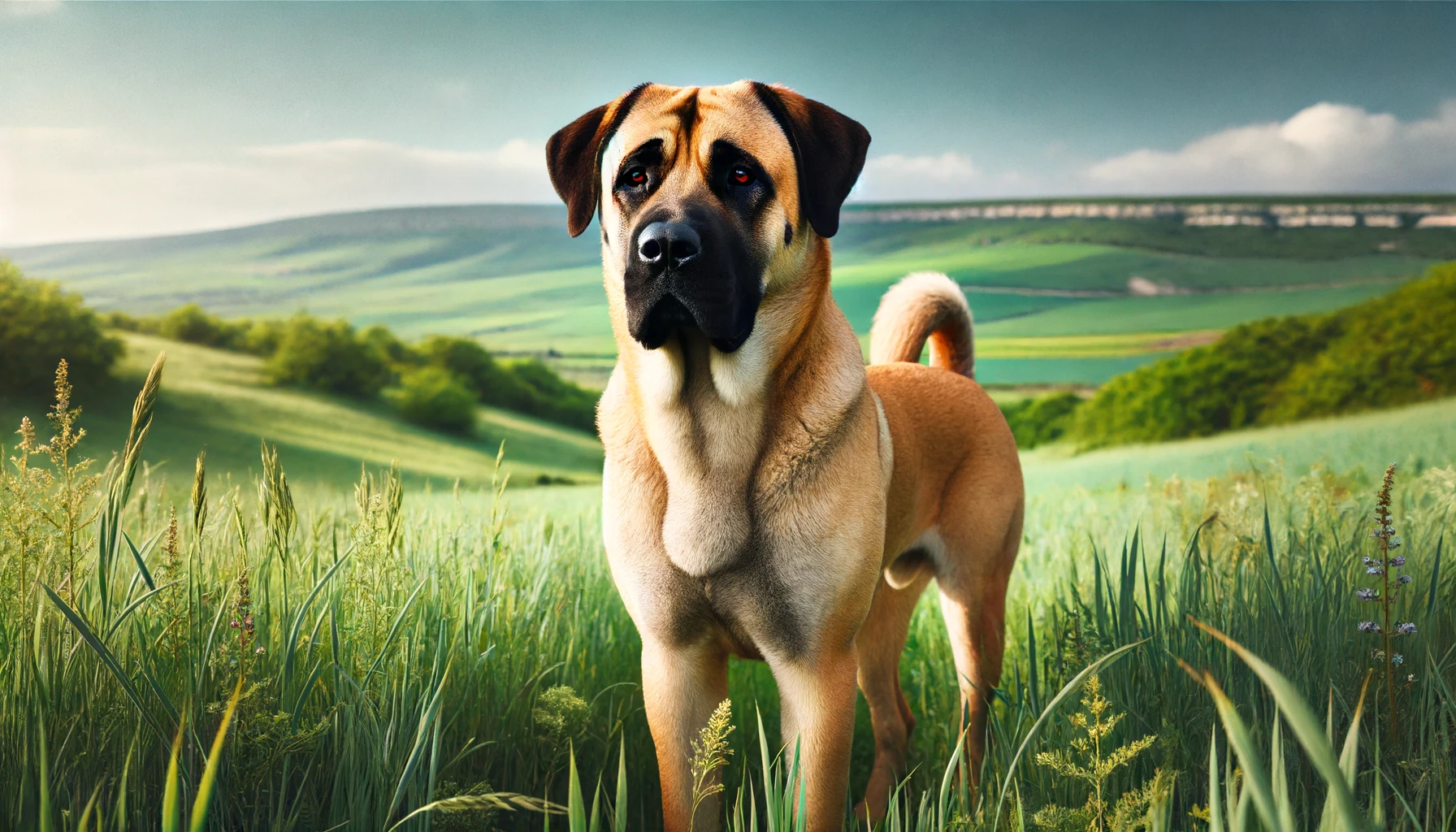
Physical Characteristics
The Anatolian Shepherd Dog is distinguished by its impressive size, strength, and rugged appearance. It has a well-balanced and athletic build, enabling it to perform its guardian duties effectively.
Size and Build
Anatolian Shepherd Dogs are large and powerful, with males typically standing between 29 to 32 inches at the shoulder and females slightly smaller at 27 to 31 inches. Their weight ranges from 80 to 150 pounds, reflecting their sturdy and muscular build. This size allows them to deter predators and handle the physical demands of protecting livestock.
Coat and Colors
The breed’s short to medium-length, dense, double-layered coat protects against harsh weather conditions. Anatolian Shepherd Dogs come in various colors, including fawn, white, brindle, and shades of brown and gray. Their coat is often marked with a black mask and ears, which is a distinctive and recognizable feature.
Distinctive Features
Anatolian Shepherd Dogs have several distinctive features that set them apart. They possess a large, broad head with a strong muzzle and their dark, almond-shaped eyes exude intelligence and alertness. The breed’s ears are medium-sized and V-shaped, typically carried close to the head. Their tail is long, often carried high with a slight curl when the dog is alert or active.
Temperament and Personality
The Anatolian Shepherd Dog is known for its independent, loyal, and protective nature. These dogs are highly intelligent and have a strong instinct to guard and protect, making them excellent watchdogs and loyal companions. They are reserved with strangers but deeply affectionate and loyal to their family.
Guardian Instincts
Anatolian Shepherds have a natural guardian instinct, developed over centuries of protecting livestock from predators. They are vigilant, alert, and highly territorial, often patrolling their home and yard to ensure safety. This breed’s strong protective nature means they are always ready to defend their family and property, often with little to no training.
Behavior with Family and Children
While Anatolian Shepherds are naturally protective, they are also known for their gentle and affectionate behavior towards their family members. They form strong bonds with their owners and are especially good with children, displaying patience and tolerance. However, due to their size and strength, it’s important to supervise interactions between the dog and young children to ensure safety for both.
Interaction with Other Animals
Anatolian Shepherd Dogs can be wary of other animals, particularly unfamiliar ones, due to their strong protective instincts. Early socialization is crucial to help them learn how to interact appropriately with other dogs and pets. They can coexist peacefully with other animals, including household pets when properly socialized. However, their guarding instincts may still manifest, especially if they perceive a threat to their family or territory.
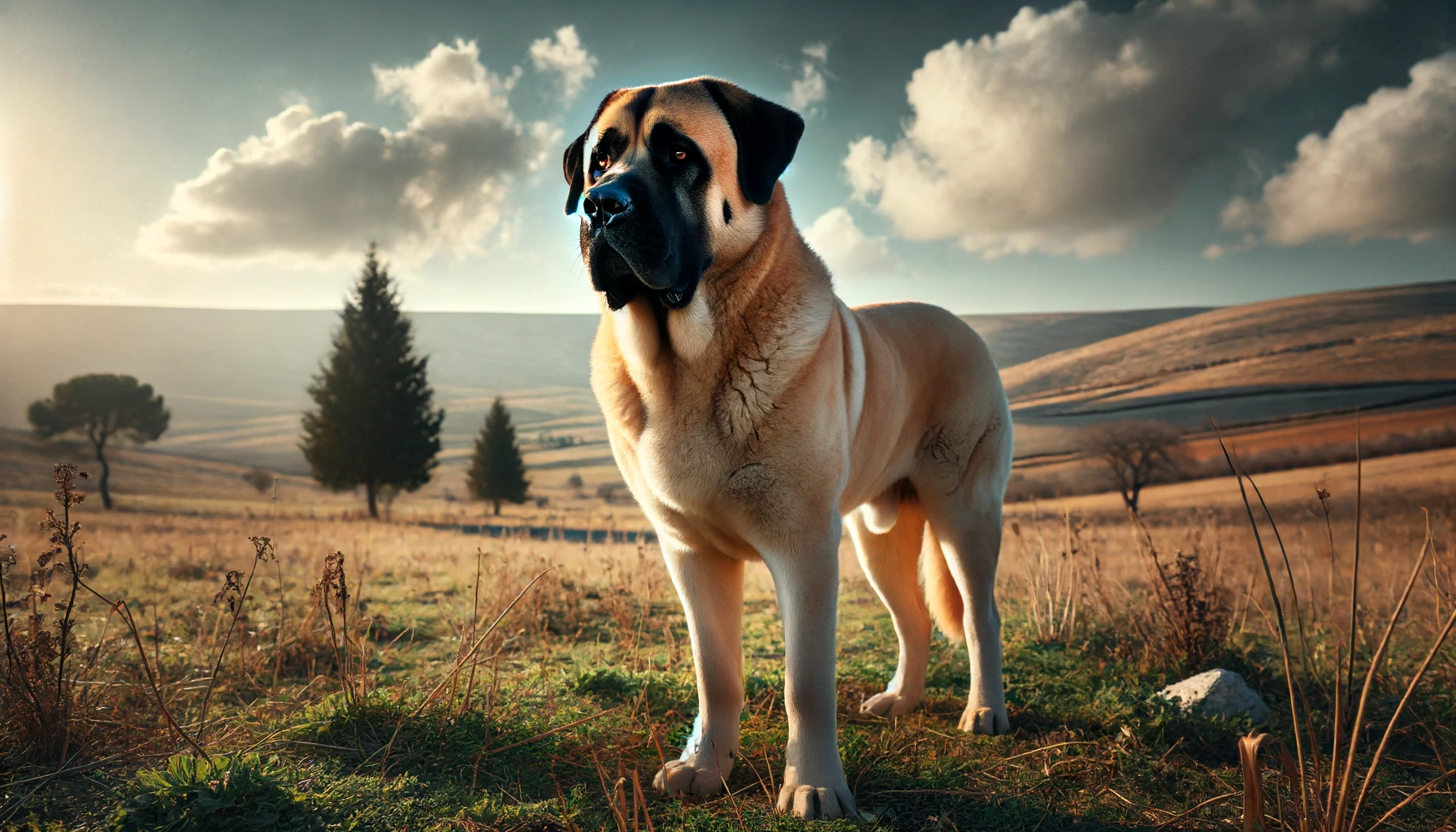
Training and Socialization
Training and socialization are essential for the Anatolian Shepherd Dog to ensure it develops into a well-behaved and balanced companion. Given the breed’s intelligence and independence, training should start early and consistently establish good habits and behaviors.
Basic Training Tips
- Start Early: Begin training your Anatolian Shepherd puppy as soon as possible. Early training helps establish good behavior patterns and prevents the development of unwanted habits.
- Consistency is Key: Be consistent with commands and routines. Use the same words and gestures for specific commands to avoid confusion.
- Positive Reinforcement: Use positive reinforcement techniques such as treats, praise, and affection to reward good behavior. Avoid harsh punishment, as it can lead to fear and aggression.
- Short Sessions: Keep training sessions short and engaging. Anatolian Shepherds can become bored with repetitive tasks, so they vary the activities to maintain their interest.
- Basic Commands: Focus on teaching basic commands like sit, stay, come, and heel. These foundational commands are essential for managing the dog’s behavior in various situations.
Importance of Early Socialization
Early socialization is crucial for Anatolian Shepherds to ensure they are well-adjusted and confident in different environments and around various people and animals. Proper socialization helps prevent fearfulness and aggression.
- Expose to Different Environments: Introduce your puppy to various environments, including parks, busy streets, and different types of terrain. This exposure helps them become adaptable and confident.
- Meet New People: Allow your puppy to meet different people, including men, women, children, and individuals wearing hats or uniforms. This variety helps them learn to be comfortable around strangers.
- Interact with Other Animals: Supervise interactions with other dogs and animals. Positive experiences with other pets help your Anatolian Shepherd learn appropriate social behavior.
- Positive Experiences: Ensure that new experiences are positive and not overwhelming. Gradually increase the complexity and intensity of socialization activities.
Advanced Training Techniques
Once your Anatolian Shepherd has mastered basic commands and socialization, you can move on to advanced training techniques to enhance their skills and behavior.
- Obedience Training: Enroll your dog in advanced obedience classes to reinforce commands and improve their response to cues in distracting environments.
- Agility Training: Engage your Anatolian Shepherd in agility training. This physical and mental exercise keeps them fit and mentally stimulated.
- Guarding and Protection Training: Given their natural guardian instincts, some owners choose to train their Anatolian Shepherds for advanced guarding and protection roles. This specialized training should be conducted by professional trainers experienced with the breed.
- Problem-Solving Exercises: Incorporate problem-solving exercises and interactive toys into your dog’s routine. These activities challenge their intellect and keep them mentally sharp.
- Advanced Tricks and Commands: Teach your dog advanced tricks and commands, such as retrieving specific objects, opening doors, or turning off lights. These tasks can provide mental stimulation and strengthen your bond with your dog.
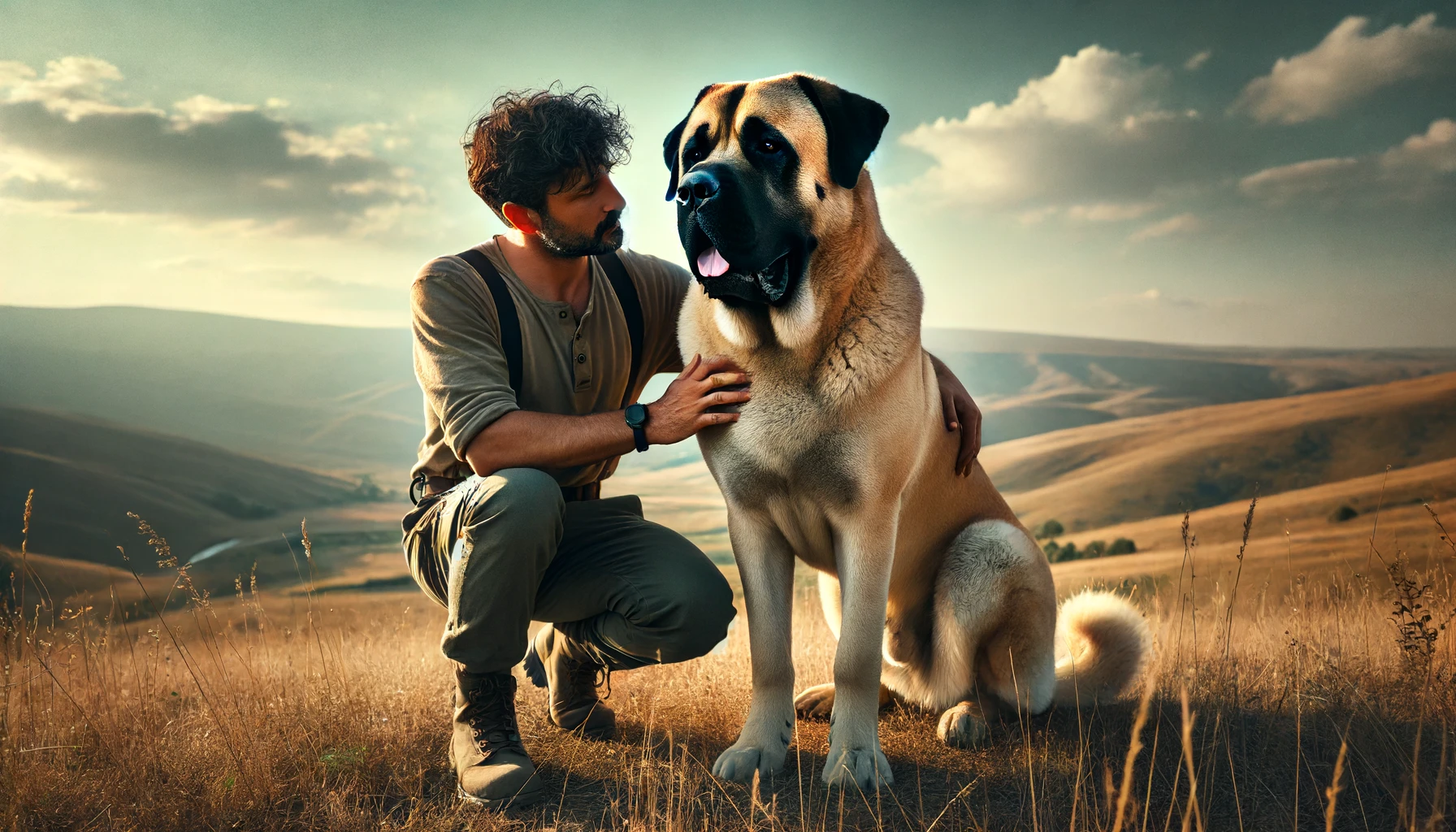
Exercise and Activity Needs
Anatolian Shepherd Dogs are active and energetic, requiring regular exercise and mental stimulation to stay healthy and well-behaved. Meeting their physical and mental needs helps prevent boredom and destructive behaviors.
Daily Exercise Requirements
Anatolian Shepherds need significant daily exercise to maintain their physical health and overall well-being. Aim for at least 60 to 90 minutes of exercise each day. This can be broken into multiple sessions to keep them engaged and active throughout the day. Exercise is essential to prevent obesity and to keep their muscles and joints healthy.
Suitable Activities for Anatolian Shepherds
- Long Walks: Daily long walks are crucial for this breed. They enjoy exploring their surroundings and walks provide both physical exercise and mental stimulation.
- Hiking: Anatolian Shepherds are excellent hiking companions due to their stamina and love for the outdoors. Ensure the terrain is suitable, and bring plenty of water for your dog.
- Running and Jogging: These dogs can be good running or jogging partners. Gradually build up their stamina to avoid overexertion, especially in younger dogs.
- Playing Fetch: Engage in games of fetch or other interactive play sessions. This helps to burn off energy and strengthens the bond between you and your dog.
- Farm Work: If you live on a farm or have access to one, Anatolian Shepherds thrive in an environment where they can perform guarding or herding tasks. Their instincts make them excellent working dogs.
- Swimming: Some Anatolian Shepherds enjoy swimming, a great low-impact exercise that’s easy on their joints.
Mental Stimulation
Mental stimulation is as important as physical exercise for Anatolian Shepherds. Keeping their minds active prevents boredom and related behavioral issues.
- Training Sessions: Incorporate regular training sessions that challenge their intellect. Teaching new commands or tricks keeps their minds sharp.
- Puzzle Toys: Provide puzzle toys and interactive feeders that require your dog to solve problems to get treats. This can keep them occupied for long periods.
- Scent Work: Engage your Anatolian Shepherd in scent work or nose games. Hide treats or toys and encourage your dog to find them using their sense of smell.
- Interactive Games: Play interactive games that involve problem-solving, such as hide-and-seek or treasure hunts.
- Agility Courses: Set up a simple agility course in your backyard or take your dog to a local agility training center.
- Navigating the obstacles is both physically and mentally stimulating.
- Socialization Outings: Regularly take your dog to new places and expose them to different environments, sounds, and sights. This variety keeps them mentally engaged and well-adjusted.
Health and Nutrition
Ensuring the health and proper nutrition of an Anatolian Shepherd Dog is essential for its longevity and quality of life. This breed requires a balanced diet, regular health check-ups, and proper grooming to thrive.
Common Health Issues
Anatolian Shepherd Dogs are generally healthy, but like all breeds, they are prone to certain health conditions. Regular veterinary care and awareness of potential issues can help maintain their health.
- Hip Dysplasia: A common genetic condition where the hip joint doesn’t fit properly into the hip socket, leading to arthritis and pain. Regular exercise and maintaining a healthy weight can help manage this condition.
- Elbow Dysplasia: Similar to hip dysplasia, this condition affects the elbow joint and can cause lameness and arthritis.
- Hypothyroidism: A condition where the thyroid gland doesn’t produce enough thyroid hormone, leading to symptoms like weight gain, lethargy, and skin issues. It can be managed with medication.
- Entropion: A condition where the eyelid rolls inward, irritating the eye. Surgical correction is often required.
- Bloat (Gastric Dilatation-Volvulus): A life-threatening condition where the stomach fills with gas and twists.
Symptoms include a swollen abdomen, restlessness, and unproductive vomiting. Immediate veterinary attention is necessary.
Dietary Requirements
Proper nutrition is crucial for the overall health and well-being of Anatolian Shepherd Dogs. Their diet should be balanced and appropriate for their age, size, and activity level.
- High-Quality Protein: Ensure the diet includes high-quality protein sources like chicken, beef, or fish. Protein is essential for muscle development and maintenance.
- Healthy Fats: Include healthy fats from sources like fish oil or flaxseed oil to support skin and coat health and provide energy.
- Complex Carbohydrates: Carbohydrates from sources like brown rice, sweet potatoes, and oats provide energy and support digestive health.
- Vitamins and Minerals: Ensure the diet includes essential vitamins and minerals to support overall health. This can be achieved through a balanced commercial dog food or a carefully planned homemade diet.
- Avoid Overfeeding: Anatolian Shepherds are prone to obesity, so monitor their weight and adjust their food intake as needed. Treats should be given in moderation.
- Fresh Water: Always provide access to clean, fresh water to keep your dog hydrated.
Grooming and Maintenance
Regular grooming and maintenance are important to keep your Anatolian Shepherd Dog looking and feeling its best.
- Brushing: Brush the coat at least weekly to remove loose hair and prevent matting. During shedding season, more frequent brushing may be necessary.
- Bathing: Bathe your dog as needed, typically every few months or when they get particularly dirty. Use a dog-specific shampoo to avoid skin irritation.
- Nail Trimming: Trim your dog’s nails regularly, usually once a month, to prevent overgrowth and splitting. If you’re unsure how to do this, a vet or professional groomer can help.
- Ear Cleaning: Regularly check and clean your dog’s ears to prevent infections. Use a vet-recommended ear cleaner and avoid inserting anything deep into the ear canal.
- Dental Care: Brush your dog’s teeth regularly to prevent dental disease. Provide dental chews and consider professional cleanings as recommended by your vet.
- Check for Parasites: Regularly check for fleas, ticks, and other parasites. Use preventative treatments as recommended by your vet.
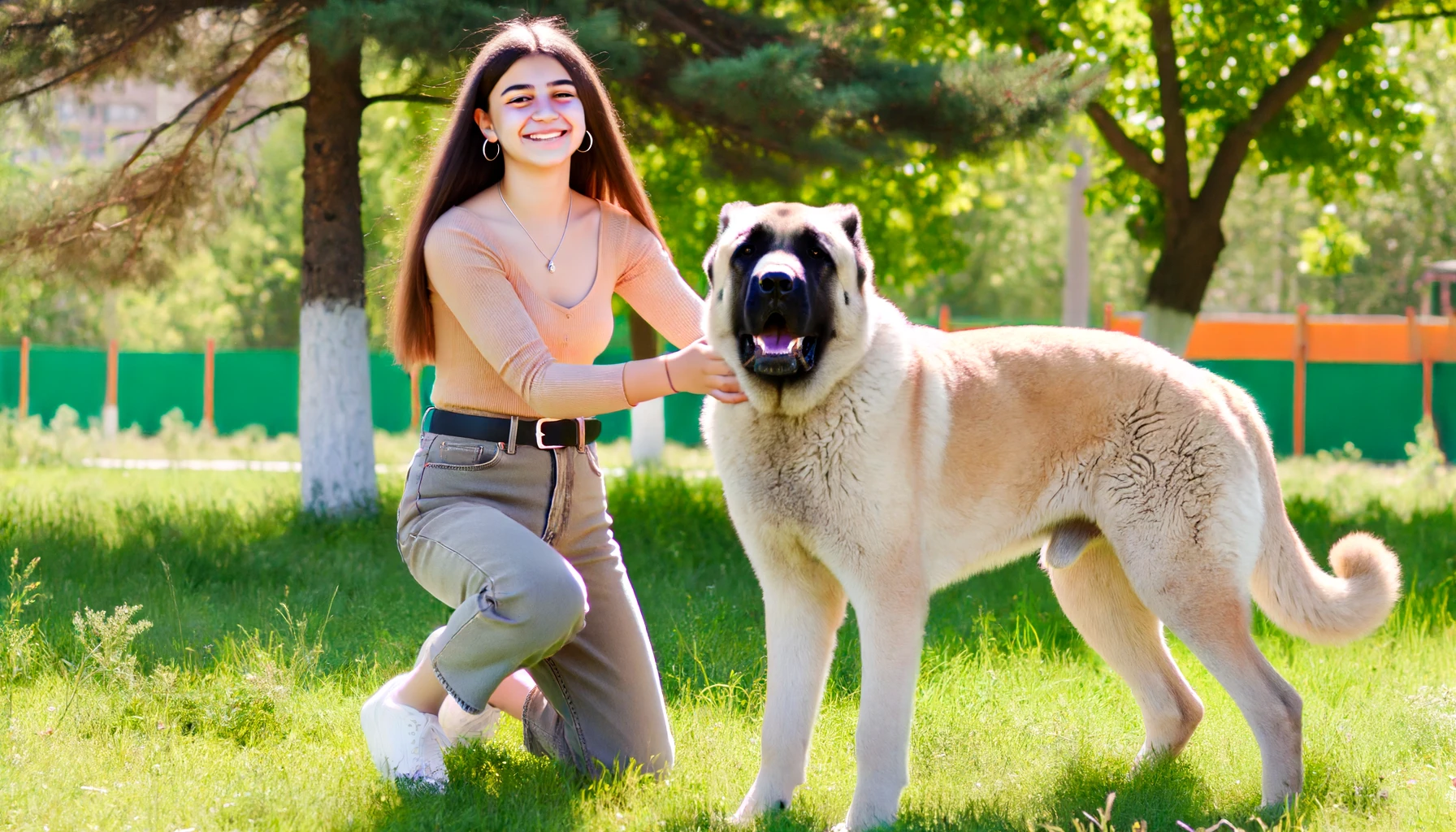
Living Conditions and Environment
The living conditions and environment for an Anatolian Shepherd Dog should cater to its size, energy levels, and natural instincts. A suitable and stimulating environment is crucial for their physical and mental well-being.
Suitable Living Arrangements
- Space Requirements: Anatolian Shepherds are large and active dogs that thrive in environments with ample space to move around. They are best suited for homes with large yards or open areas where they can roam and patrol. Apartment living is generally not ideal for this breed unless there are frequent opportunities for outdoor exercise.
- Fenced Yard: A securely fenced yard is essential for Anatolian Shepherds. Their strong guarding instincts can lead them to wander or chase perceived threats. A high, sturdy fence helps ensure their safety and prevents them from escaping.
- Shelter: Provide a shelter or dog house in the yard to protect them from extreme weather conditions. This is particularly important if they spend a significant amount of time outdoors.
- Indoor Access: While they enjoy being outdoors, Anatolian Shepherds should also have access to indoor living areas to spend time with their family and rest comfortably.
- Social Interaction: Anatolian Shepherds need social interaction with their family despite their independent nature. Ensure they have opportunities to bond and interact with household members to prevent loneliness and behavioral issues.
Adaptability to Different Climates
Anatolian Shepherds are highly adaptable to various climates thanks to their double-layered coat. Still, certain considerations should be taken to ensure their comfort and well-being in different weather conditions.
- Cold Climates: Anatolian Shepherds are well-suited to cold climates due to their thick, dense coat. However, provide them with a warm, insulated shelter to protect them from extreme cold and wind. Ensure they have access to fresh water, which can freeze in low temperatures.
- Hot Climates: Anatolian Shepherds need access to shade and plenty of fresh water to stay hydrated in hot climates. Their coat protects against the sun, but they can still overheat. Avoid vigorous exercise during the hottest parts of the day and ensure they have a cool place to rest.
- Seasonal Shedding: Anatolian Shepherds shed heavily, particularly during seasonal changes. Regular brushing helps manage shedding and keeps their coat healthy. Increased grooming during these periods can also help them stay comfortable.
- Humidity Considerations: High humidity can be uncomfortable for Anatolian Shepherds, as it hampers their ability to cool down through panting. Ensure they have a cool, dry place to retreat and avoid overexertion in humid conditions.
Working Roles and Capabilities
The Anatolian Shepherd Dog is renowned for its working capabilities, particularly in guarding and protecting livestock. However, this versatile breed can excel in various roles beyond traditional livestock guarding.
Livestock Guardian Role
- Natural Instincts: Anatolian Shepherds have been bred for centuries to guard livestock, and their instincts make them exceptional at this job. They are vigilant, courageous, and highly protective of their flock.
- Protection Against Predators: These dogs are adept at protecting livestock from predators such as wolves, coyotes, and bears. Their size, strength, and intimidating presence act as a deterrent to potential threats.
- Independent Decision-Making: Anatolian Shepherds can make independent decisions when guarding livestock. They assess threats and respond accordingly without waiting for human commands, making them reliable guardians in remote areas.
- Bonding with Livestock: Anatolian Shepherds form strong bonds with the animals they protect. They often live with the livestock and integrate into the herd or flock, ensuring constant protection.
- Minimal Supervision: Once trained, Anatolian Shepherds require minimal supervision. They understand their role and perform their duties diligently, allowing farmers and ranchers to focus on other tasks.
Other Working Roles
While their primary role is as livestock guardians, Anatolian Shepherds are versatile and can perform various other working roles effectively.
- Property and Home Guardians: Anatolian Shepherds make excellent property and home guardians due to their protective nature. They are territorial and will alert their owners to intruders or unusual activities, providing security.
- Search and Rescue: Their keen sense of smell, endurance, and intelligence make Anatolian Shepherds suitable candidates for search and rescue operations. They can track scents over long distances and challenging terrains.
- Therapy and Assistance Dogs: Anatolian Shepherds can serve as therapy or assistance dogs with proper training. Their calm and gentle demeanor with their family members makes them well-suited for emotional support and assistance for disabled individuals.
- Detection Work: Anatolian Shepherds can be trained for detection work, including drug and explosive detection. Their strong sense of smell and ability to focus on tasks make them effective in these roles.
- Herding: While primarily guardians, some Anatolian Shepherds can be trained to assist with herding livestock. Their size and strength enable them to move animals efficiently, though this role is secondary to their guarding duties.
Adoption and Buying Guide
When considering adding an Anatolian Shepherd Dog to your family, it’s important to make informed decisions about whether to buy from a breeder or adopt. Understanding how to choose a reputable breeder, adoption considerations, and the associated costs and long-term commitments can help ensure a smooth and rewarding experience.
Choosing a Reputable Breeder
- Research and Referrals: Start by researching breeders online and asking for referrals from trusted sources such as veterinarians, dog trainers, and breed clubs. A reputable breeder will have positive reviews and testimonials.
- Visit the Breeder: Arrange to visit the breeder’s facility to see how the puppies are raised. The environment should be clean and well-maintained, and provide adequate space for the dogs.
- Health Testing: Ensure the breeder conducts health testing on their breeding dogs for common genetic conditions like hip dysplasia and hypothyroidism. Ask to see health clearances and certifications.
- Meet the Parents: If possible, meet the puppy’s parents to assess their temperament and health. The parents should be well-socialized, friendly, and healthy.
- Breeder’s Knowledge and Support: A reputable breeder should be knowledgeable about the breed and willing to answer your questions. They should provide ongoing support and be available to offer advice throughout the dog’s life.
- Contracts and Guarantees: Look for breeders who provide a written contract that outlines the terms of sale, health guarantees, and return policies. Reputable breeders will offer to return the dog if you can no longer care for it.
Adoption Considerations
- Rescue Organizations: Consider adopting rescue organizations or breed-specific rescue groups. These organizations often have dogs needing loving homes and can provide valuable information about the dog’s background and temperament.
- Shelters: Check local animal shelters for Anatolian Shepherds or mixed breeds with similar traits. Adopting from a shelter can save a life and provide a home to a needy dog.
- Assessment and Matchmaking: Work with rescue organizations and shelters to find a dog that matches your lifestyle and needs. They often conduct assessments to match dogs with suitable homes.
- Health and Behavior Evaluation: Ensure the dog has been evaluated for health and behavior issues. Reputable rescues will provide medical records and information about the dog’s behavior and training needs.
- Adoption Fees: Be prepared to pay an adoption fee, which typically covers vaccinations, spaying/neutering, and other veterinary care. Adoption fees are usually lower than purchasing a puppy from a breeder.
Cost and Long-term Commitment
- Initial Costs: The initial costs of acquiring an Anatolian Shepherd include the purchase price or adoption fee, vaccinations, spaying/neutering, microchipping, and initial supplies such as a crate, bed, toys, and food.
- Ongoing Expenses: Consider ongoing expenses such as high-quality dog food, regular veterinary check-ups, grooming supplies, flea and tick prevention, and training classes. Additionally, factor in the cost of pet insurance if you choose to purchase it.
- Time and Effort: Anatolian Shepherds require significant time and effort for training, socialization, exercise, and mental stimulation. Ensure you have the time and commitment to meet their needs.
- Lifespan and Commitment: Anatolian Shepherds typically live 10 to 13 years. Be prepared for a long-term commitment to caring for your dog throughout its life, including senior care and potential health issues that may arise with age.
- Emergency Costs: Set aside funds for unexpected veterinary emergencies. A financial safety net ensures you can provide the best care for your dog in case of illness or injury.
Final Take for Anatolian Shepherd Dog
Anatolian Shepherd Dogs are loyal and protective pets. They love their families and keep them safe. These dogs are perfect for people who have lots of space. They need to run and play every day. Their short fur is easy to care for, which makes grooming simple.
These dogs are smart and learn quickly. They are great with kids and other pets if trained well. Anatolian Shepherds live long, healthy lives. They are calm and quiet but will bark if they sense danger. Families who enjoy the outdoors will love having an Anatolian Shepherd Dog as a companion.
FAQs about Anatolian Shepherd Dogs
Q: How big do Anatolian Shepherd Dogs get?
Anatolian Shepherd Dogs are large. Males can weigh up to 150 pounds and stand 29 inches tall. Females are a bit smaller.
Q: Are Anatolian Shepherd Dogs good with children?
Yes, Anatolian Shepherd Dogs are good with children. They are protective and gentle if trained and socialized properly.
Q: How much exercise does an Anatolian Shepherd Dog need?
These dogs need lots of exercise. They enjoy running and playing every day. They are best suited for families with a big yard or open space.
Q: Do Anatolian Shepherd Dogs shed a lot?
A: Anatolian Shepherd Dogs have short fur, which is easy to care for. They do shed, but regular brushing helps manage it.
Q: Are Anatolian Shepherd Dogs easy to train?
Anatolian Shepherd Dogs are very smart and learn quickly. Early training and socialization are important to help them behave well.
Q: How long do Anatolian Shepherd Dogs live?
Anatolian Shepherd Dogs have a long lifespan. They can live up to 15 years with proper care and a healthy lifestyle.
Q: What kind of home is best for an Anatolian Shepherd Dog?
These dogs need a home with lots of space. They do best with families who enjoy outdoor activities and have room for them to roam.
Q: Are Anatolian Shepherd Dogs good guard dogs?
Yes, Anatolian Shepherd Dogs are excellent guard dogs. They are protective and have strong instincts to protect their family and property.


